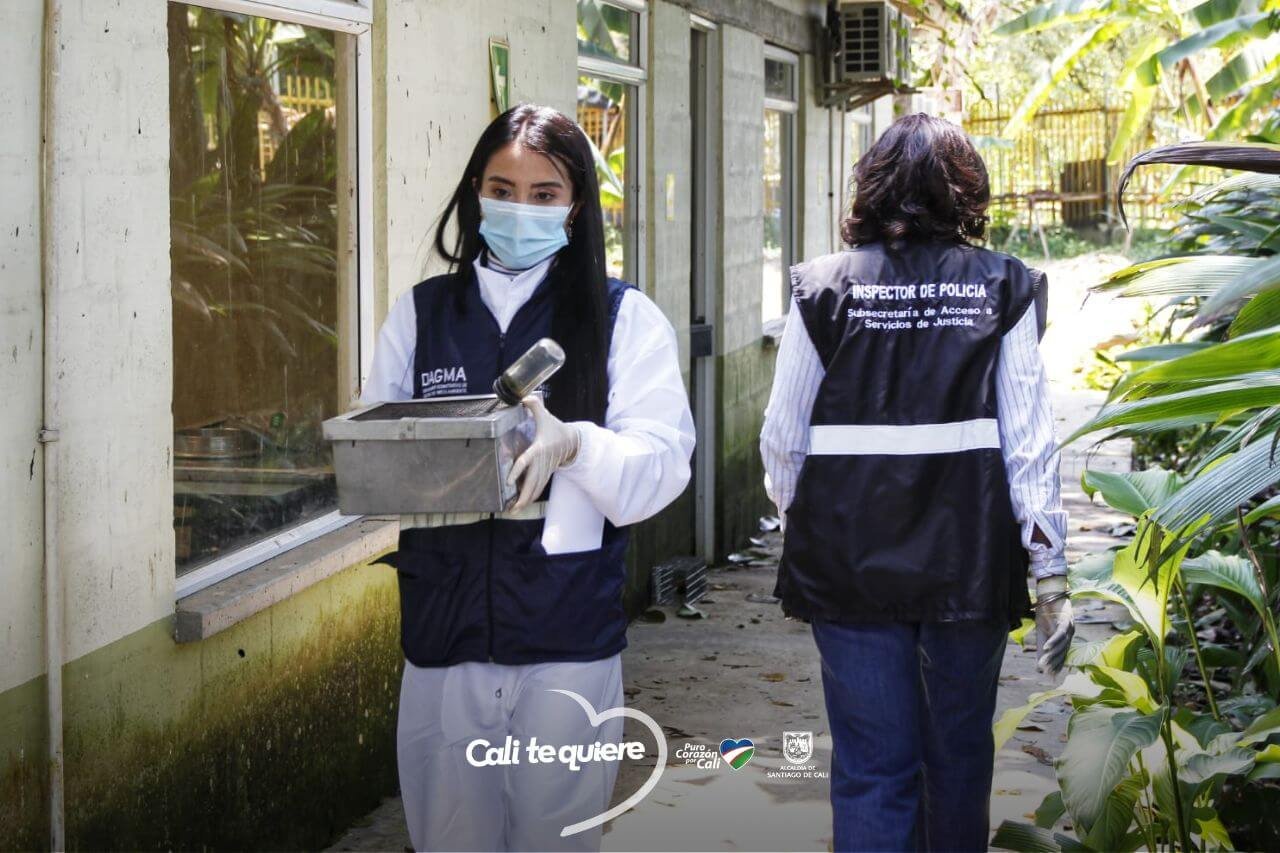NIH Halts Funding for Controversial Colombian Lab Involved in Monkey Research
The laboratory was shut down, and more than 100 monkeys and 180 mice were seized following an investigation that exposed monkeys kept in filthy, makeshift cages covered with a tarp and other violations of Colombian law and NIH policy.
These owl monkeys rescued from the Primate Center Foundation are recovering at the CVC’s wildlife rescue and rehabilitation center, where they’re finally receiving the professional care they urgently needed. Credit: Corporación Autónoma Regional del Valle del Cauca
The National Institutes of Health (NIH) has cut off funding to two Colombian organizations at the center of an 18-month investigation that revealed animal abuse and neglect.
The Caucaseco Scientific Research Center (Caucaseco), the Malaria Vaccine and Development Center (MVDC), the Primate Center Foundation (FUCEP) and other businesses are owned and operated by husband-and-wife team Sócrates Herrera Valencia (Herrera) and Myriam Arévalo Ramírez (Arévalo).
The operations have secured more than $17 million in taxpayer money from NIH contracts since 2003, according to People for the Ethical Treatment for Animals (PETA), who conducted the investigation.
These institutions, which operate beyond the reach of US animal protection laws, have been experimenting on Aotus monkeys—also known as “owl monkeys” or “night monkeys”—and breeding them, possibly illegally, for years.
PETA’s investigation revealed that monkeys were deliberately infected with the malaria parasite and that their spleens were surgically removed before the animals were killed. Other monkeys were left to die from infected wounds. The primates were held in rusty cages amid their own waste in a makeshift pen made of backyard fencing and plastic sheets and were fed dog kibble soaked in sugary water.
Credit: PETA
These violations of Colombian law and NIH policy occurred while collaborating and publishing with top scientists, including Carole Long, the chief of malaria research at NIAID, and in conjunction with major institutions in the U.S., France, and Switzerland, state PETA.
Following the investigation, Colombian authorities cracked down on Caucaseco earlier this year, stopping all animal experiments there, closing the facilities, and seizing nearly 300 animals.
The Colombian regional environmental agency, Corporación Autónoma Regional del Valle del Cauca (CVC) also documented the unexplained disappearance of 21 monkeys in less than 14 months and an across-the-board lack of documentation, including veterinary records. Inspectors also discovered a dead baby monkey, a monkey missing an eye, and monkeys confined in illegal conditions.
“We’re grateful to local authorities for acting quickly to cut this horrendous operation off at the knees,” said Dr. Magnolia Martínez, lead projects manager with PETA’s Laboratory Investigations Department, at the time of the shut down.
A Colombian regional environmental agency also filed formal charges against Caucaseco for lacking permits to experiment on monkeys and to capture squirrel monkeys, causing “harm to wildlife,” and for other violations. The Colombian comptroller general audited the owners’ contracts and found several irregularities that warrant disciplinary action. He requested a refund of at least $157,000.
NIH Lagging Far Behind
Despite the findings and the action taken by Colombian authorities, NIH then invited the organization, Caucaseco Scientific Research Center, to submit a plan to move its experiments to another country and continue to receive millions of U.S. taxpayer dollars, according to a leaked letter.
“After PETA revealed NIH’s plan to enable known animal abusers to move shop and continue their pointless monkey torment, the agency has finally done the right thing and pulled its funding,” says Dr. Magnolia Martínez, lead projects manager with PETA’s Laboratory Investigations Department.
Colombian authorities seized nearly 300 animals. Credit: Alcaldía de Cali
PETA is now calling on NIH to stop funding all foreign animal experimentation. The organization argues that there is no way of ensuring compliance with local laws or NIH requirements.
Between 2011 and 2021, NIH gave around $2.2 billion to approximately 200 foreign organizations to fund 1,177 grants and 180 contracts involving experiments on animals, revealed a recent report from the US Government Accountability Office. Those taxpayer dollars went to Colombia and 44 other countries.
Action for Change
Since 1998, the NIH has spent $32 million of taxpayer money on sensory deprivation experiments by Margaret Livingstone. The experiments include blinding newborn baby monkeys by sewing their eyes shut and ripping them away from their mothers shortly after birth. Urge Harvard to end these torturous experiments on mothers and baby monkeys here.
To learn more about the fight to end animal testing, listening to this Species Unite podcast series, featuring guests such as Ingrid Newkirk, Dr Katherine Roe, Elizabeth Baker, and many more.
We Have A Favor To Ask…
Species Unite amplifies well-researched solutions to some of the most abusive animal industries operating today.
At this crucial moment, with worldwide momentum for change building, it’s vital we share these animal-free solutions with the world - and we need your help.
We’re a nonprofit, and so to keep sharing these solutions, we’re relying on you - with your support, we can continue our essential work in growing a powerful community of animal advocates this year.
More stories:
Species Unite
A collection of stories of those who fight the good fight on behalf of animals.






From an owl who taught a city how to hope, to the fight to restore collapsing kelp forests, to the urgent push for justice for animals harmed by human systems - these are the stories behind Species Unite’s most listened-to podcast episodes of 2025.